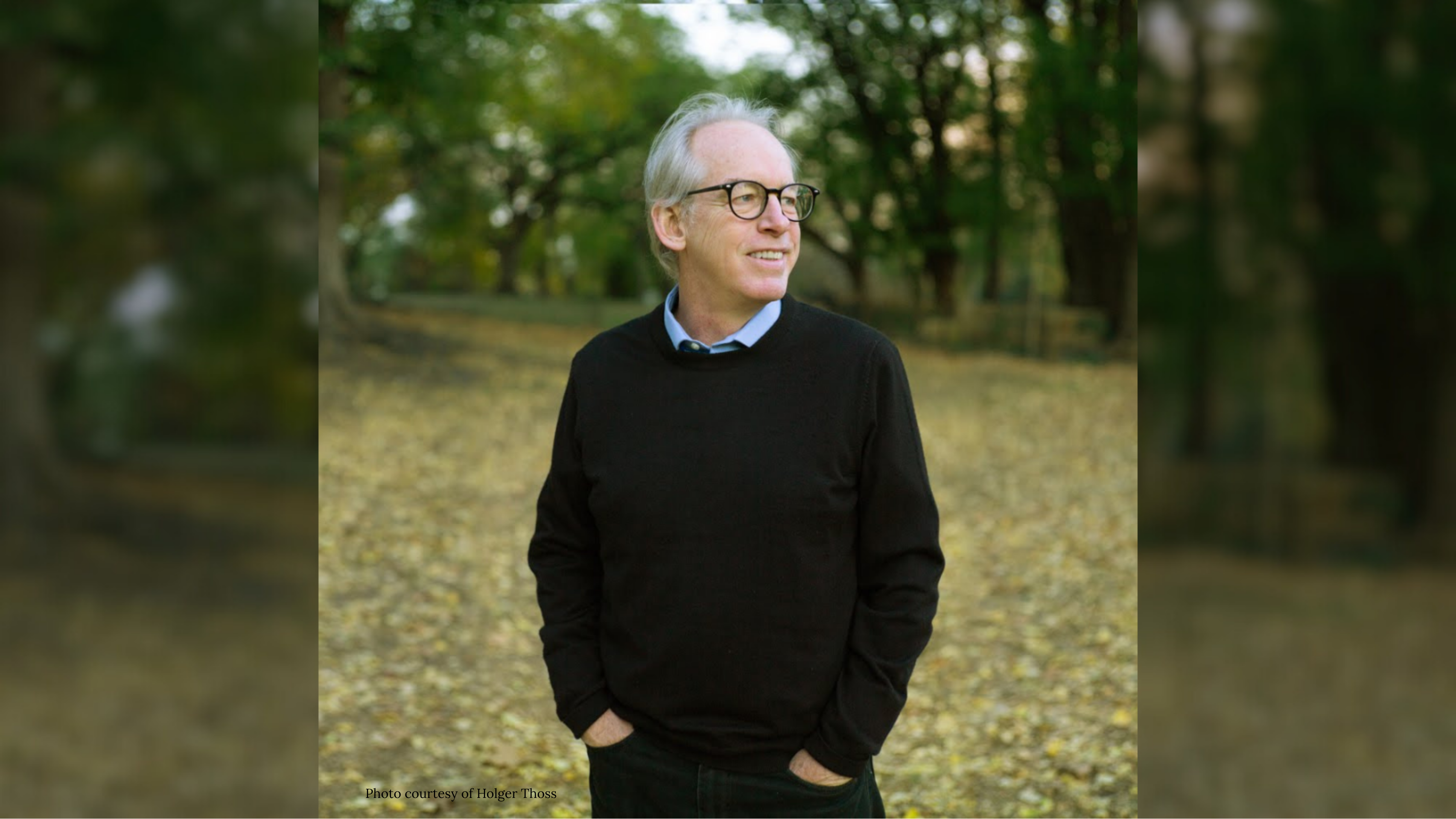
Formation: Navigating Faith Amid Shifting Landscapes
Paul Elie grew up in a suburb of Albany, New York, steeped in what he calls “brand-spanking new Catholicism”—a faith shaped in the wake of the Second Vatican Council (1962-1965), which sought to make Catholicism more accessible to contemporary life. This reformist spirit met the cultural textures of 1970s American suburbia, forming a unique backdrop to Elie’s early religious experience. At his public high school, Elie enrolled in a writing course and discovered literary nonfiction through writers like Joan Didion, John McPhee, and Tom Wolfe. The effect was immediate and lasting. “Literary nonfiction hit me hard,” he recalls. “I’ve never looked back.”
That passion followed Elie to Fordham University in the 1980s, where he had earned a merit scholarship. There, a course taught by author Verlyn Klinkenborg further deepened his commitment to literary nonfiction. At the same time, Elie was encountering Fordham’s Jesuit Catholicism—intellectually rigorous, socially conscious, and morally serious. Yet beyond the university’s gates, the Church led by Pope John Paul II in Rome and Cardinal John J. O’Connor in New York struck him as increasingly rigid and conservative.
The challenge became how to fit the kind of Catholicism I’d grown up with with the Catholicism I fell for hard in college—and then to reconcile what I was reading…with what I was seeing in the New York City of the ‘80s.
That dissonance pushed Elie to seek out other modes of religious expression. He found them in the work of twentieth-century Catholic writers—Thomas Merton, Flannery O’Connor, Dorothy Day, and Walker Percy—whose work embraced the complexities of belief. Their writing became his compass, and eventually, the foundation of his first book.
Finding a Voice in New York’s Literary World
Elie deepened his literary education at Columbia University, earning an MFA in creative writing. “I’m still living off the reading that I did in that graduate program,” he says, reflecting on how the reading of those years – from Henry James and Proust to Don DeLillo, Toni Morrison, and Denis Johnson – laid the foundation for much of his later work. Freelance roles at Commonweal (to which he still regularly contributes) and The New Republic followed, though Elie feels he “wasn’t really good at” news-cycle journalism. It was at Lingua Franca, a magazine about academia, that he found his groove: “I didn’t want to write puff pieces, but I didn’t have strong enough opinions for political magazines.” Lingua Franca was the “sweet spot” as Elie continued to find his voice as a writer and editor.
He soon joined Farrar, Straus, and Giroux (FSG), the legendary literary publishing house, where he worked for nearly two decades. “It’s as if I got six Ph.D.s at FSG,” Elie says. “It was hard work, low pay, the compensation being a total unreconstructed belief in literature, and just a ton of fun.” He helped shape major bestsellers—Thomas L. Friedman’s The Lexus and the Olive Tree and The World Is Flat were two—but found his niche in distinctive nonfiction (“a 500-page history of tap dance…this was the kind of book I was really drawn to…if we didn’t do it, it might not get done”), all while quietly working on his own writing.
In effect, I learned how to conceive a certain kind of book by helping others shape theirs, and then was able to take some of what I learned into the writing of my own first book.
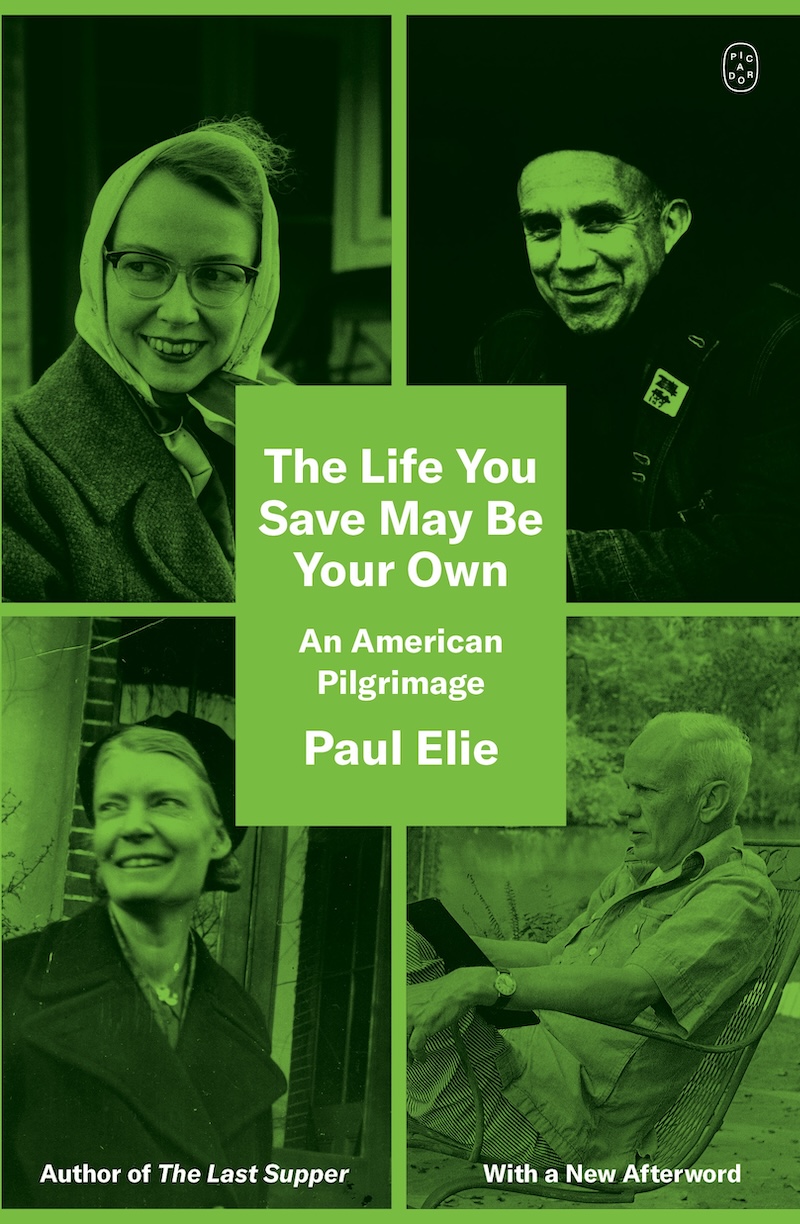
That first book, The Life You Save May Be Your Own: An American Pilgrimage (2003), emerged from his formative engagement with twentieth-century Catholic writers. Through a sweeping group portrait of four literary figures—Thomas Merton, Dorothy Day, Flannery O’Connor, and Walker Percy—the book traced how their lives and work intersected. It was a breakout success, earning recognition from Catholic and secular audiences alike. It won the PEN/Martha Albrand Award for First Nonfiction and was a finalist for the National Book Critics Circle Award.
Following the success of his book, Elie became a sought-after commentator on contemporary religious issues. An invitation to contribute to The New York Times Magazine then led to major essays on Vatican politics and dozens of reporting trips to Rome for Vanity Fair and The Atlantic. (On one of his many trips to Rome during this period, Elie met John J. DeGioia, who, while serving as president of Georgetown University, had gifted The Life You Save May Be Your Own to the university’s board of directors.) During this period, Elie also published a long-form profile on the papal transition from John Paul II to Benedict XVI that appeared in The Atlantic in 2006, further establishing his reputation as a leading commentator on the Catholic Church. And he and his wife, Lenora Todaro, also a writer, were raising three sons.
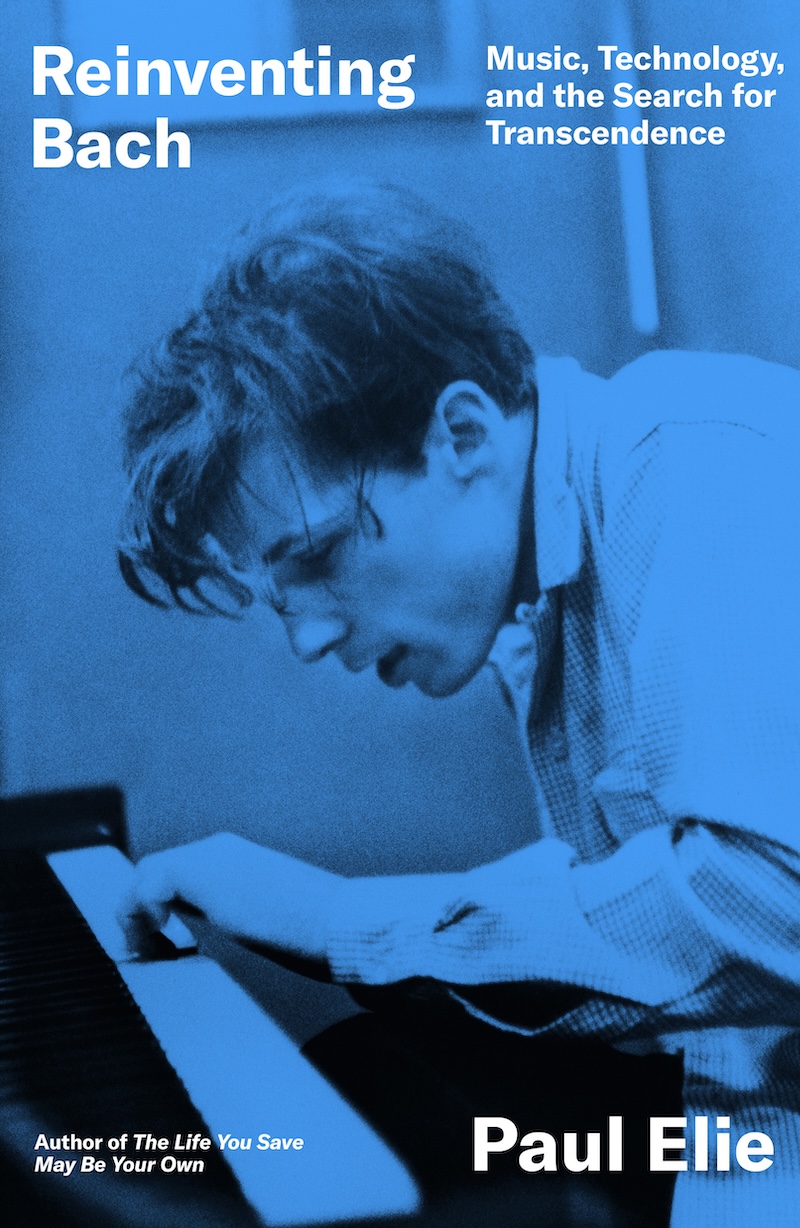
Even as his commentary on faith and public life expanded, Elie’s literary attention began to shift. While still editing at FSG, Elie became increasingly drawn to the world of classical music, specifically the works of Johann Sebastian Bach. Inspired by Columbia University’s WKCR Bach Fest—an annual tradition where the radio station exclusively plays Bach for a week straight at Christmastime—he began to explore how those pieces had been reshaped through centuries of recording technology. That exploration eventually became Reinventing Bach: Music, Technology, and the Search for Transcendence (2012), a wide-ranging meditation on how sound recording allowed Bach’s music not just to survive, but to be continually reimagined by figures like Albert Schweitzer, Glenn Gould, and Yo-Yo Ma. Like his debut, Reinventing Bach was also a National Book Critics Circle Award finalist.
Writing, Teaching, and the Georgetown Years
With two books behind him, Elie left FSG to join Georgetown University full-time in 2012. There, he continued his collaboration with the Berkley Center for Religion, Peace, and World Affairs through his role in moderating the Faith and Culture Series, which had launched in 2008 with support from DeGioia. This ongoing series brings contemporary writers to campus to discuss the ways belief informs their work, reinforcing his conviction that art and religion exist in constant dialogue.
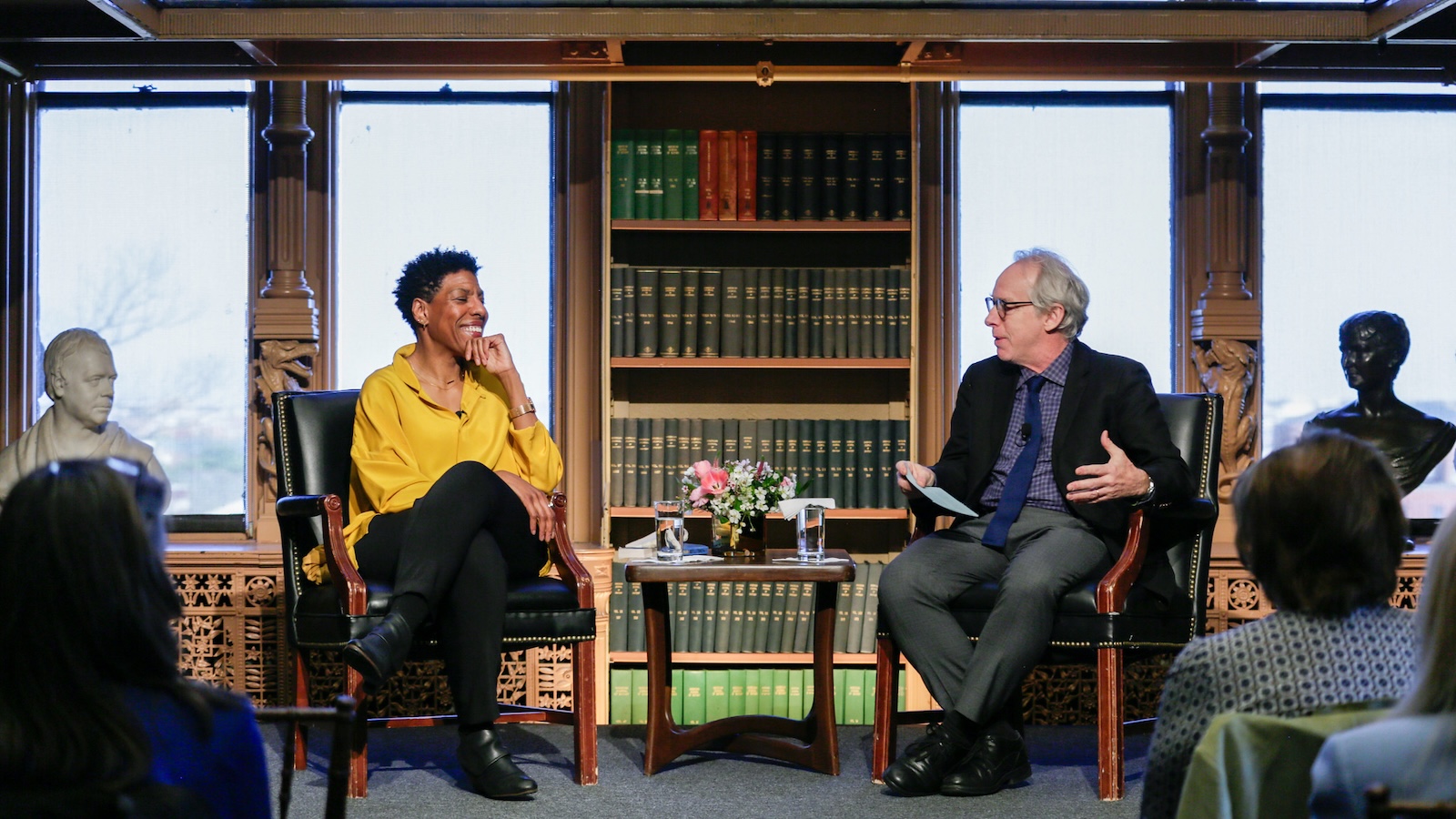
As a senior fellow at the Berkley Center, Elie also fostered public conversations about religion’s role in American life. Through the American Pilgrimage Project—a collaboration with StoryCorps that aired on NPR—he has highlighted personal narratives of faith and transformation through over 200 interviews with ordinary Americans in several dozen locales. The American Pilgrimage Project aims to illuminate the diversity of spiritual experience in America, drawing out voices that often go unheard in dialogues about religion.
Elie now teaches both first-year courses like The Future of the Catholic Idea—a class in the university’s Ignatius Seminar program—and a spring upper-level on literary nonfiction. “The first thing I say to students at Georgetown is: my life was changed by courses like this,” says Elie. He sees his work as part of Georgetown’s formation ethos—educating the whole person, not just the intellect.
In parallel with his work at Georgetown, Elie found himself increasingly drawn to revisiting the themes of faith and spirituality that had shaped his earlier writing. This intellectual return is now realized in his just published book The Last Supper: Art, Faith, Sex, and Controversy in the 1980s.
The Last Supper and the 1980s as a Spiritual Crossroads
Elie’s third book is also his most personal. Unlike The Life You Save May Be Your Own, the period under review in The Last Supper is one he lived through. The book revisits the 1980s—not as a decade of political conservatism, but as a rich period of spiritual and artistic questioning. The spark for this new book coalesced while Elie was writing articles about two flashpoints of religious controversy: the uproar over Martin Scorsese’s The Last Temptation of Christ in August 1988 and the protests against Salman Rushdie’s The Satanic Verses that September. “Those two narratives, which are separate and distinct in most cultural histories, happened only a few weeks apart,” Elie noted.
Where was faith operating in contemporary fiction? Who were the successors to O’Connor, Percy, Merton, and Day? I didn’t have a satisfactory answer to that question…It wasn’t operating to the degree that one would expect… The whole question of faith and whether faith is a legitimate way of looking at the world, I felt wasn’t being dramatized in fiction.
He began to investigate what he calls the “crypto-religious” undercurrents of the decade. Elie uses that term—first coined by poet Czesław Miłosz—to describe the art and artists of the decade that draw on religious symbols, themes, and language, but do so outside of the bounds of traditional faith, engaging with aspects of contemporary life that many Church leaders were unwilling to accept. As he continued this research, Elie found that his frame of reference needed to expand—realizing that to fully grasp the spiritual and artistic currents of the time, he had to look beyond Catholicism and even beyond traditional religion altogether.
What was the actual culture that I found congenial at the moment, when I was living in New York in the ‘80s? It was U2 and The Smiths and William Kennedy’s Ironweed.
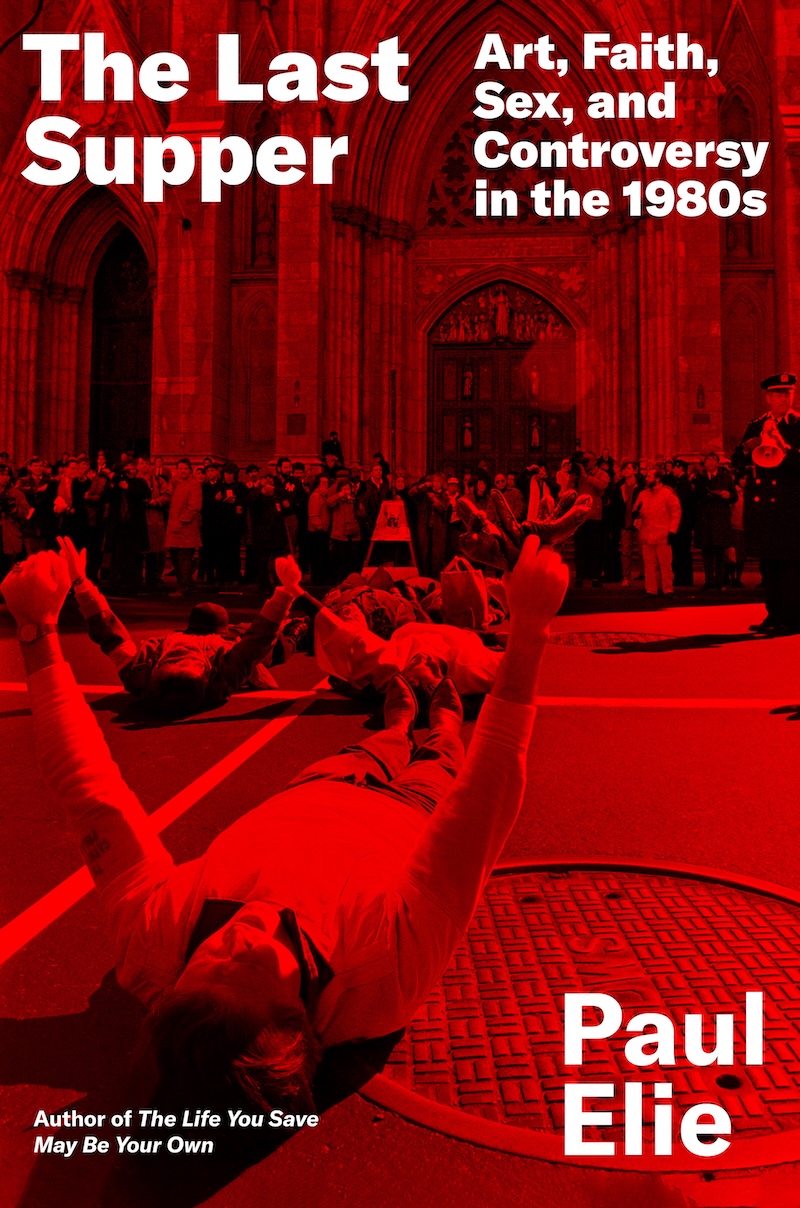
The Last Supper follows that wider current. From Leonard Cohen’s “Hallelujah”—perhaps the quintessential example of crypto-religious art—to Toni Morrison’s reckoning with both Christian and African traditions in Beloved and other works, to Andy Warhol’s The Last Supper (which lends the book its title), Elie’s lens captures artists who used religious forms to wrestle with contemporary experience.
Called “gripping and essential” and “virtuosic and revelatory” by early reviews, the book’s cultural excavation of the 1980s is a vivid chronicle of a decade where the sacred and secular collided in surprising and consequential ways.
What’s Next? Carrying the Conversation Forward
With The Last Supper, Elie returns not only to the decade that profoundly shaped his worldview, but to the questions that launched his life’s work: Where does belief reside in today’s world? What forms does faith take in the absence of certainty? Though the book now is complete, Elie isn’t closing his inquiry on those themes. His essays in the New Yorker, his courses at Georgetown, and his continued engagement with the Berkley Center remain vital spaces where he engages with the evolving intersections of religion, politics, and public life—extending those very conversations explored through his books.
That same spirit carries into his recent collaboration with filmmaker Martin Scorsese (who is also featured in The Last Supper.) Elie serves as a consultant on The Saints, Scorsese’s 2024 series that reimagines the lives of the saints not as remote paragons, but as deeply human figures. Elie is part of Scorsese’s “brain trust” for the project—participating in roundtable discussions after each episode. Season one wrapped-up in April and season two is in production now.
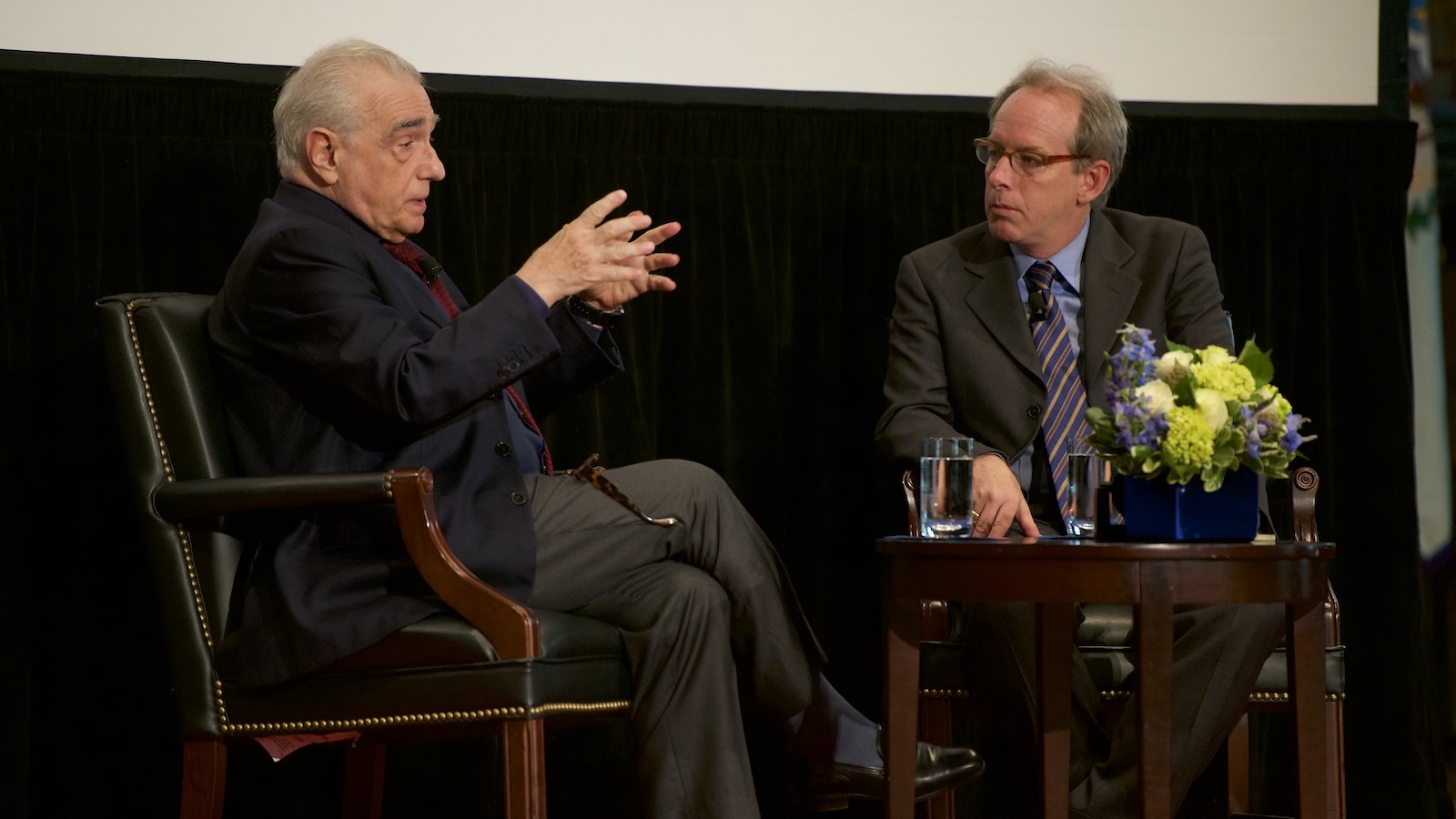
Whether on the page, in the classroom, or in conversation, Paul Elie’s work is an invitation—to engage, to reflect, and to explore how faith and culture continually shape one another in unexpected ways. If writing is how Elie conducts his own “American pilgrimage,” as he has suggested, then he’s still on the road, eager to see what’s around the next bend.
Elie’s new book, The Last Supper: Art, Faith, Sex, and Controversy in the 1980s, was released on May 27, 2025.
Featured Person: Paul Elie Person